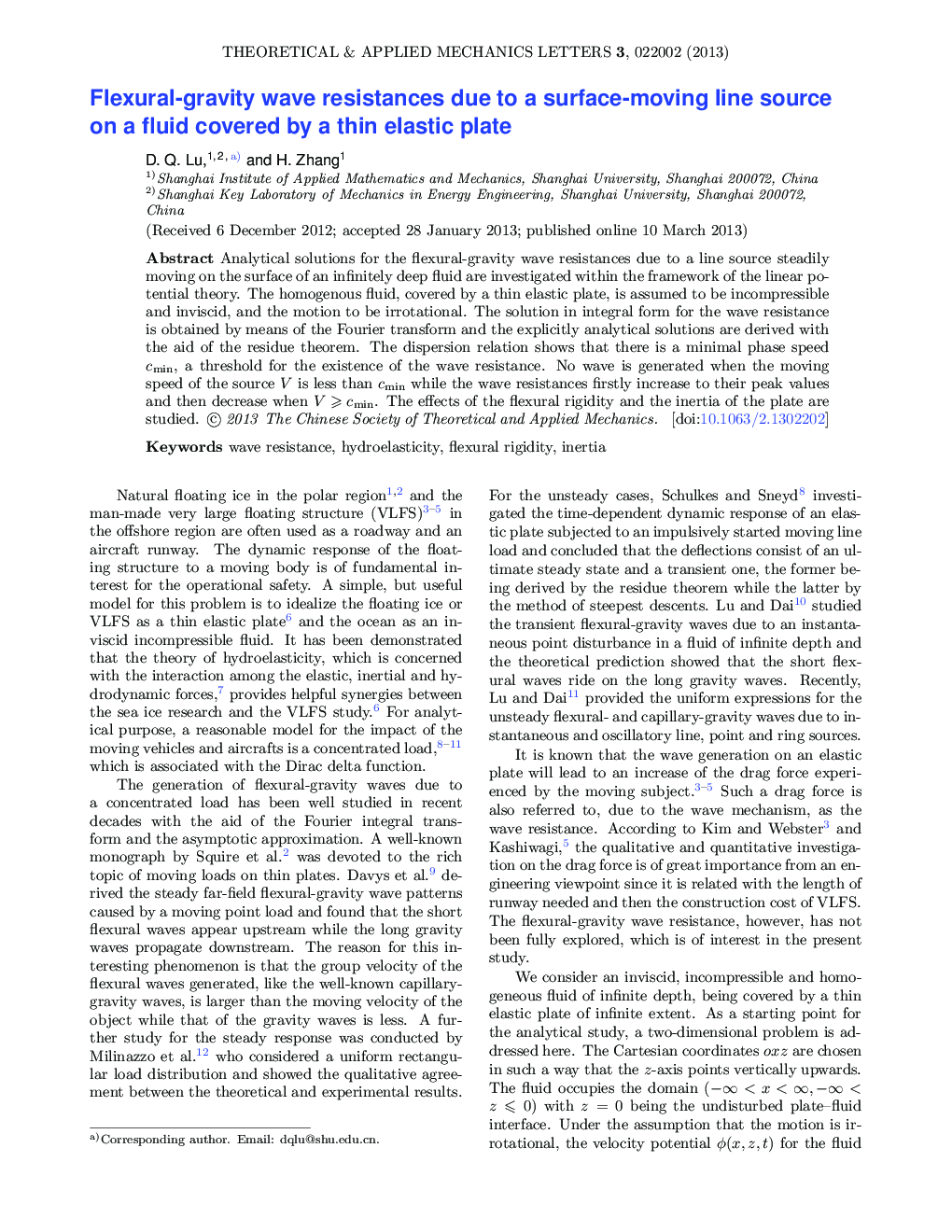| Article ID | Journal | Published Year | Pages | File Type |
|---|---|---|---|---|
| 808617 | Theoretical and Applied Mechanics Letters | 2013 | 19990 Pages |
Analytical solutions for the flexural-gravity wave resistances due to a line source steadily moving on the surface of an infinitely deep fluid are investigated within the framework of the linear potential theory. The homogenous fluid, covered by a thin elastic plate, is assumed to be incompressible and inviscid, and the motion to be irrotational. The solution in integral form for the wave resistance is obtained by means of the Fourier transform and the explicitly analytical solutions are derived with the aid of the residue theorem. The dispersion relation shows that there is a minimal phase speed cmin, a threshold for the existence of the wave resistance. No wave is generated when the moving speed of the source V is less than cmin while the wave resistances firstly increase to their peak values and then decrease when V ⩾ cmin. The effects of the flexural rigidity and the inertia of the plate are studied.
